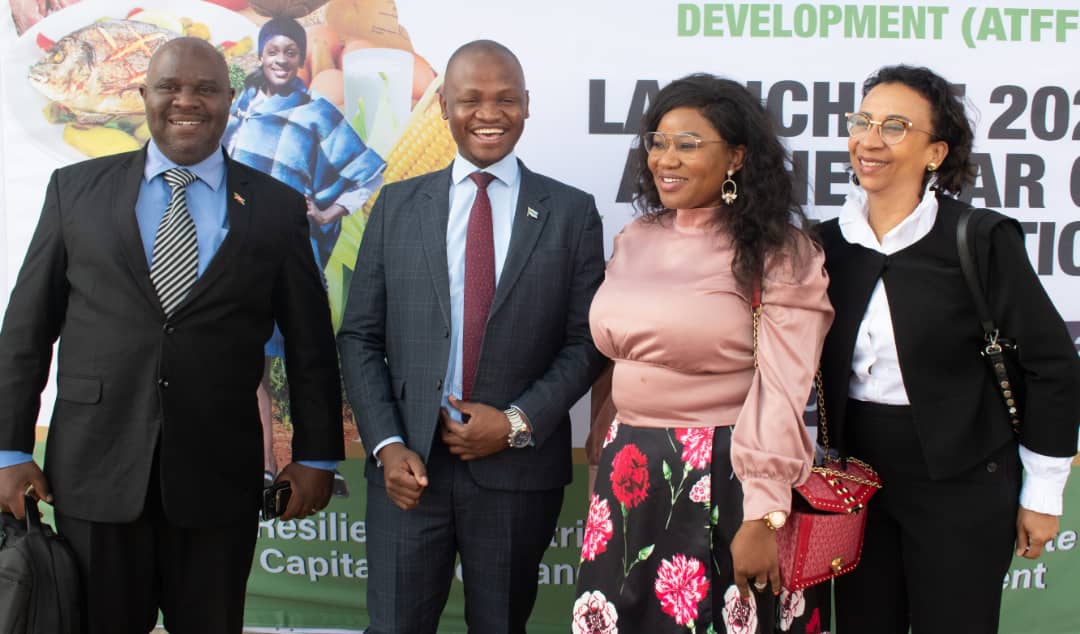|
Getting your Trinity Audio player ready...
|
By Baboloki Semele
Calls have been made for increased effort in upscaling food and nutrition security by African Union member states in order to realise development outcomes as espoused in the AU’s Agenda 2063.
Although the African region seems to have witnessed a decrease in malnutrition of its population by about 13.5%, from 35.5% in 1990 to 22% in 2019, more work still needs to be done to improve nutrition and food security in the continent.
These words were echoed by Botswana’s Minister of Health, Edwin Gorataone Dikoloti when launching the African Union year of nutrition in Botswana last week.
In particular, Minister Dikoloti highlighted Agenda 2063 goal number three which emphasizes the importance of healthy and well-nourished citizens, synchronizing it with the UN Sustainable Development Goal Number 3 on good health and wellness.
The African Union has declared 2022 as the Year of Nutrition under the theme “Strengthening Resilience in Nutrition and Food Security on the African Continent: Strengthening Agro-Food Systems, Health and Social Protection Systems for the Acceleration of Human, Social and Economic Capital Development.”
According to Dikoloti, this theme is appropriate and fitting, as it seeks, not only to celebrate the gains made in nutrition; and focus the continent on maintaining stronger political momentum on nutrition, but also challenges member states to earnestly contribute towards ending all forms of malnutrition in Africa.
“This can be achieved through new pledges and resolves to support, resource, and finance action plans dedicated to achieving set targets and results by all AU member states which include our beautiful Botswana,” he said.
In her welcoming remarks, the permanent secretary in the ministry of health Grace Muzila took a trip down memory lane and recalled the commitment made seven years ago by the global community, to end hunger, food insecurity, and all forms of malnutrition by 2030.
She pointed out that evidence shows, however, that nearly 828 million people across the globe were affected by hunger in 2021, an increase of 150 million since 2019. Should these trends continue, she pointed out that the world will not achieve Zero Hunger by 2030, as intended.
She, therefore, called on Africa to double her efforts, not only in ensuring food sufficiency but also by committing to improving the nutritional status of her people, particularly women and children.
Subsequent to that, she further presented evidence as presented in the continental nutrition accountability scorecard launched by the African Union and the Africa leaders for Nutrition (ALN) in 2019, which indicates that globally, 150.8 million children under five years are stunted, and 58.7 million of those stunted are in Africa.
The report also specified that only seven member states have stunting rates below 19%, while fifteen member states have child wasting prevalence below 5%. The report further shows thirty-eight member states have a women’s anemia prevalence of more than 30%, whereas only 18 member states have at least 50% of infants exclusively breastfed.
For her part, Mrs. Cisse Mariama Mohammed, the director for health, humanitarian affairs, and social development at the African Union Commission pointed out that Botswana has demonstrated its leadership by aligning her national food and nutrition strategies to those of the African Union.
She emphasized that over the years Botswana has exhibited an admirably remarkable programmatic budgetary commitment to food security and good nutrition for her citizens.
“This can clearly be seen from an investment in social protection programmes such as the homegrown school feeding, which is fully funded from domestic resources,” said Mohammed.
On other issues director Mohammed noted that despite progress made by Africa in addressing food and nutrition challenges, the continent continues to experience key challenges such as climate change and disasters, including droughts and floods, conflicts and high cost of living, and the recent recovery from Covid 19, which has affected food security and nutrition negatively.
These challenges, she says if not addressed, will continue to undermine the progress made in nutrition and food security, leading to adverse political, social, and economic development issues.






